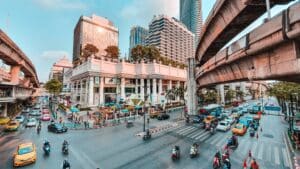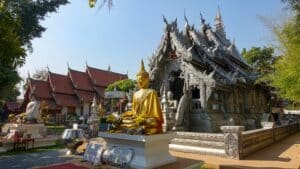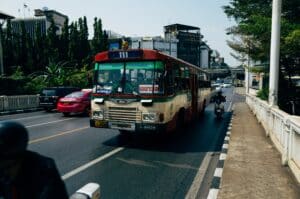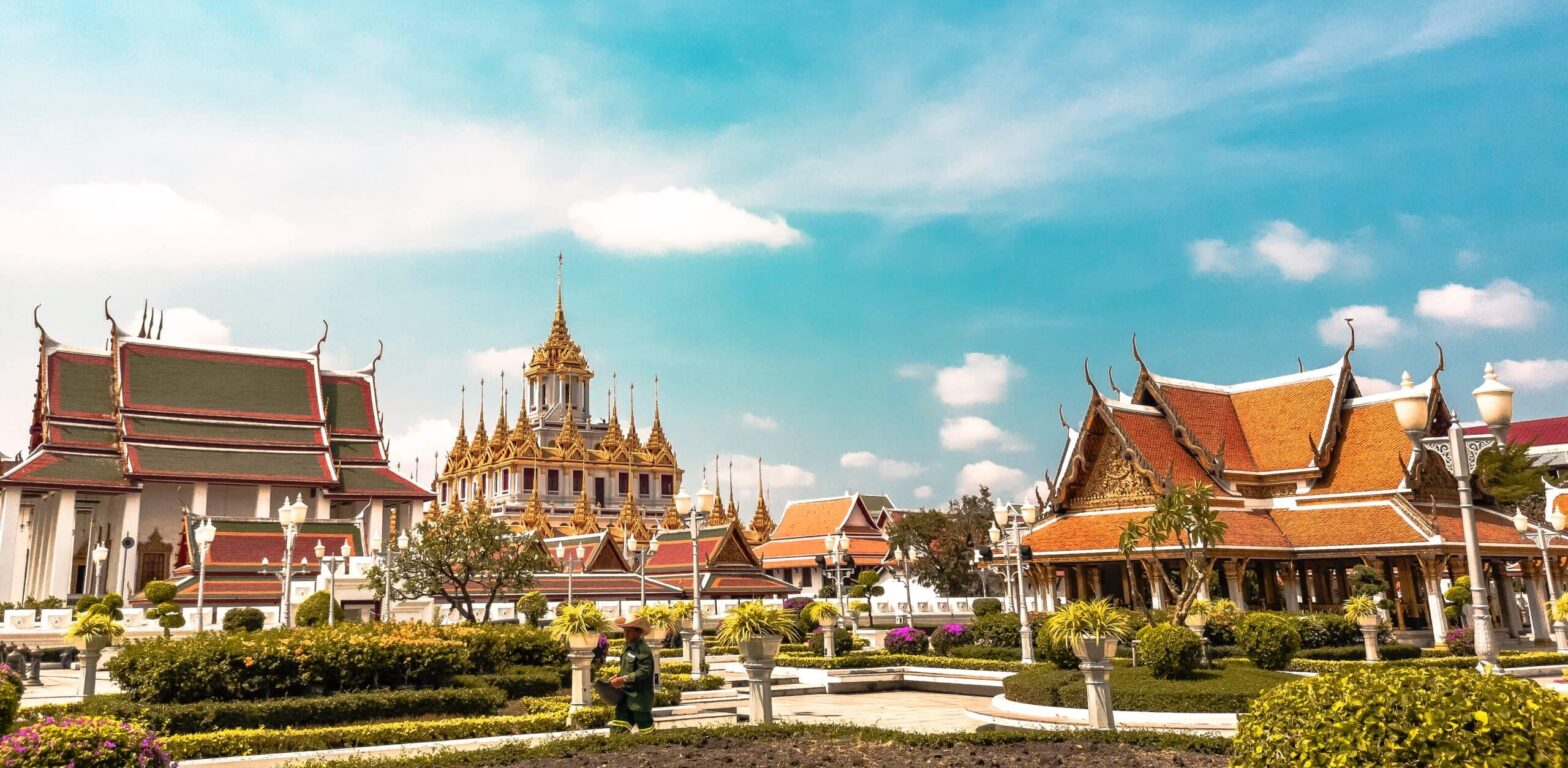An exotic land of hospitality popular among travelers, situated between idyllic islands and lush jungles, Thailand has so much to offer not the least a burgeoning economy and an exceptional cultural and culinary tradition.
So, how best to relocate to Thailand? What are the features of an expat life there? Foyer Global Health is here to give you some tips on how to prepare to embark on your journey to ‘the land of smiles’…
Which visa do you need?
Before moving to Thailand, most expatriates will need to obtain a visa from the Thai embassy in their country of residence. There are several types of visas for foreigners depending on your profile and the reason for your stay; work, retirement, study, or family reasons. Thailand non-immigrant visas follow categories B, O, ED, OA, IB; LTR; and SMART.
Since September 2022, a five-year long-term resident visa (LTR) renewable once is available for five categories of applicants, including digital nomads and ‘Wealthy Global Citizens’.
For more information, please apply directly to the Thai embassy located in your country of residence.
Where should you live?
Bangkok

The gigantic, bustling metropolis is home to trendy bars, night markets that never sleep, thousands of food spots, an efficient public transportation system and a very mixed expat community. This is the perfect spot for expats dreaming of an exotic experience in a big city.
Chiang Mai

Thailand’s fifth largest city, the ‘Rose of the North’ is one of the best cities for expat entrepreneurs, specifically digital nomads who will appreciate the quality of life as well as Chiang Mai’s accessibility, its co-working spaces and lush natural surroundings. Chiang Mai is a city where it’s easy to enjoy life, get around and integrate socially.
Phuket

Thailand’s largest island offers a unique lifestyle with its 44 palm-fringed beaches, tranquility, and all the modern conveniences of a large city. Phuket is the place where you can be at once at the beach and in the city!
Finding accommodation
Prices for rentals are quite reasonable by European and North American standards. However, there are some disparities depending on the location of the accommodation (downtown/suburbs; capital/other cities; tourist hubs/quiet islands, etc.).
There is a wide variety of accommodation for rent, mainly apartments with services including cleaning and dry cleaning, apartments in condominiums often equipped with a swimming pool or a gym and individual villas or semi-detached houses. Remember to ask if there is hot water available in the apartment as it is not always the case! Also inquire whether water, gas and electricity bills have been paid by the previous tenant.
The duration of the lease, generally between six months and one year, is negotiable with the owner. In addition, you may be asked for two months’ advance rent, a month’s deposit, a character reference from your employer, and a credit check.
Useful links:
In theory, foreigners are not allowed to own land, but in practice, however, they can buy a condo using foreign currency or go through a local business partner to build their home.
To work…
The second biggest economy in Southeast Asia, Thailand offers many opportunities to work.
A plethora of ‘digital nomads’ find all the ingredients to make their businesses flourish in a country that offers sun, a solid internet connection and a superb quality of life. Expatriates looking for a job generally turn to sectors such as tourism, new technologies, teaching and marketing. Others work for large multinational companies, UN agencies, NGOs or embassies. While the average monthly salary in Thailand is about 550€, most expatriates, especially those working for a multinational or an embassy, earn a much higher salary.
If you wish to set up your own business, you should hire a lawyer and/or an experienced expatriate to take care of all the administrative and legal procedures.
Once you have your non-immigrant visa, you can apply for a work permit from the regional authorities.
… Or not to work
Many retirees head to Thailand to spend the last years of their life basking in the sun. If you meet the criteria to obtain an O-A non-immigrant visa: 800 000 THB of annual income and 50+ years old, welcome to your new home!
Taxes
In Thailand, income tax is between 0 and 35%, depending on your income. Make sure that your country of origin has signed a tax treaty with Thailand to avoid being taxed twice!
Getting around
Your mode of transportation will depend on where you live. In Bangkok, for example, traffic is very heavy so it is sometimes better to rely on public transportation including MRT, Khlong boats, Chao Phraya express or on motorcycle cabs. Other options include traditional cabs, Uber/Grab, or the famous Tuk-Tuks! In other cities such as Chiang Mai or Phuket, many people use a motorcycle or a scooter to get around. Even though most roads are in good condition, the number of road accidents is high.

If you want to drive, remember to get a Thai license as soon as possible within two months of your arrival!
Healthcare
Thailand is a global healthcare leader and destination for medical tourism.The country is home to prestigious, private healthcare facilities offering excellent value, highly efficient medical care with five-star patient comfort. It is highly recommended, however, that expats purchase international healthcare insurance to cover medical expenses in any health facility in Thailand and elsewhere.
Remember to be careful not to approach wild animals such as snakes or monkeys which can be dangerous and carry diseases.
Education
As an expatriate, you can choose between bilingual schools (following the Thai national education program with courses mostly in English)and international schools (French international school of Bangkok; British international school; ISB…). Expatriates often opt for schools that follow the education curriculum of their country.
The pros of expat life in Thailand:
- Thai people are very welcoming, warm and… friendly!
- A superb environment to live in: idyllic islands, bustling metropolises, thousand-year-old temples and vibrant exotic nature
- The relatively low cost of living allows you to have an excellent quality of life
- Thai food is a delight! In restaurants or on the street, you will savour and enjoy papaya salads, pad thai, khao pad thai, or coconut soup!
- A rich cultural heritage
- An ideal starting point from which to explore all of Southeast Asia
- A tropical climate
Thailand vs the Philippines
Often, expatriates who are planning to relocate to Southeast Asia hesitate between these two countries. If ‘the land of smiles’ regularly dethrones the archipelago in the international rankings because of its numerous assets, it is, ultimately, a matter of adaptation and taste. The Philippines attracts many expatriates with its beaches, vibrant culture and hospitality.
Some specific Thai characteristics:
- Thai culture is rooted in family tradition, respect for the elderly and Buddhism
- At work, the dress code is rather conservative but do not wear black. Being amicable and helpful is de rigueur
- The royal family holds a central place in Thai society and insulting the monarchy is a crime of lèse-majesté
- Keeping calm is very important in social interactions
- Electronic cigarettes are strictly forbidden!
Top experiences in Thailand:
- Explore Bangkok’s 1001 spots and its temples (Wat Phra Kaew; Wat Pho; Wat Suthat; Wat Saket…)
- Celebrate the arrival of the full moon at Ko Pha-Ngan
- Snorklein Ko Tao, and in Surin and Similan islands’ national parks
- Cycle across the ruins of Ayuthaya and Sukothai
- Ramble in Khao Sok jungle, one of the most beautiful national parks in Thailand
- Go trekking in Chiang Rai or Kanchanaburi
- Discover the best beaches of Phuket, such as Nui Beach, Nai Harn or Kata
Find more about some interesting facts about Thailand in our blog!:
